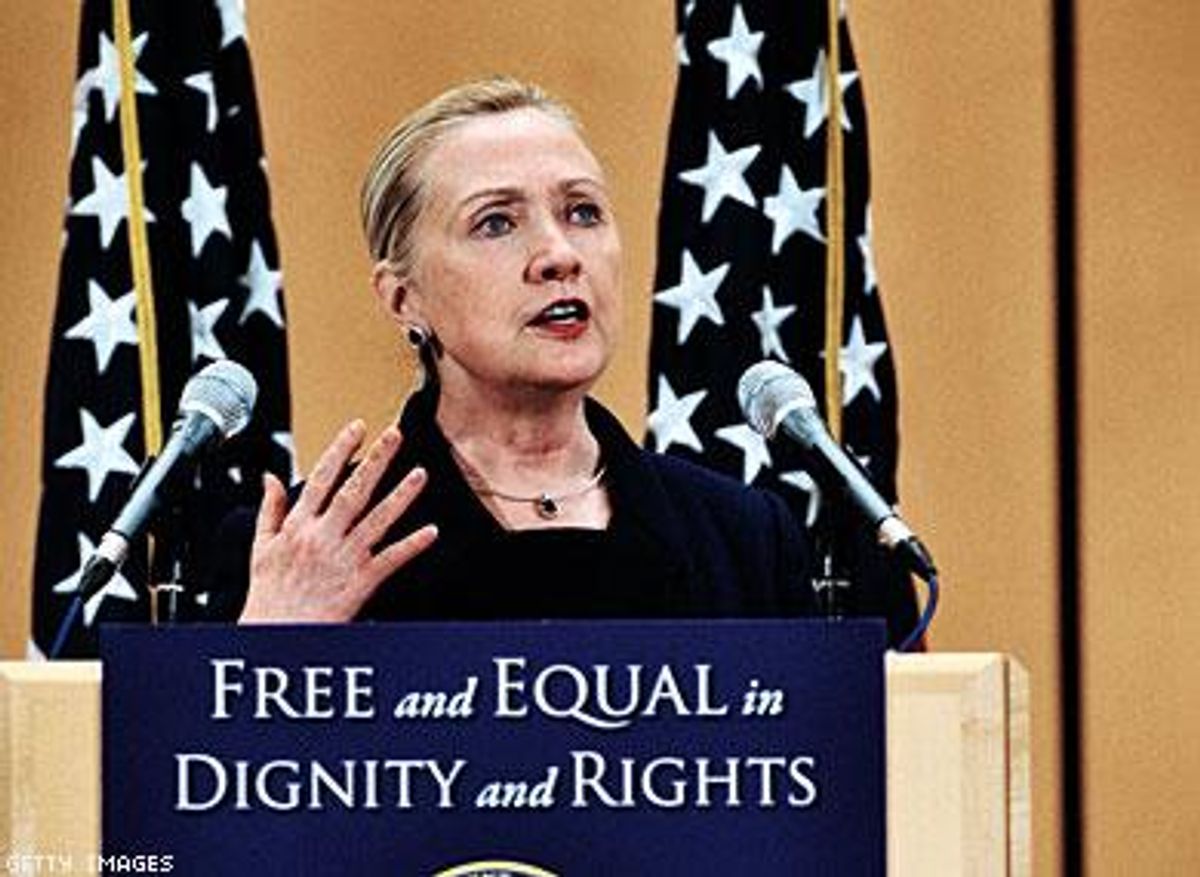Print Issue
Obama's Global March for Equality Hits Harsh Reality
Obama's Global March for Equality Hits Harsh Reality

By continuing to use our site, you agree to our Private Policy and Terms of Use.
Obama's Global March for Equality Hits Harsh Reality
Obama's Global March for Equality Hits Harsh Reality

From the February 2012 issue
Even the most calcified of cynics may have softened while listening to Secretary of State Hillary Rodham Clinton's December address on LGBT rights to the United Nations in Geneva -- a speech that balanced a respectful tone with a systematic dismantling of abhorrent justifications still used to criminalize LGBT people in more than 80 countries.
Clinton conceded American shortcomings on equality (acknowledging that it wasn't until 2003 that the U.S. Supreme Court in Lawrence v. Texas held that private, consensual sex between adults was protected under the Fourteenth Amendment), yet she implored the world to adopt baseline standards of individual dignity, moving perhaps, as constitutional law scholar Martha Nussbaum so eloquently wrote in 2010, "from a politics of disgust to a politics of humanity." Following decades of evolution in social justice work, from women's rights to battles against apartheid, "we came to learn that no practice or tradition trumps the human rights that belong to all of us," Clinton said. "And this holds true for inflicting violence on LGBT people, criminalizing their status or behavior, expelling them from their families and communities, or tacitly or explicitly accepting their killing."
Whether the goals outlined in the address -- and the Obama administration's articulated foreign policy accompanying it -- will translate into meaningful action and diplomacy is yet to be seen. An incipient global fund to aid LGBT organizations working in some of the most dangerous locales on earth currently stands at only about $3 million, though State Department officials hope that other groups will step up and contribute. Less than 24 hours after Clinton's address, Nigeria, Africa's most populous nation, moved forward on a bill to criminalize same-sex unions, with the country's minister of information responding, "Some of the things that are considered fundamental rights abroad also can be very offensive to African culture."
The State Department and the White House national security team, which developed the memorandum over several months prior to its December release, have their work cut out for them. "We know the road ahead will not be easy. A great deal of work lies before us," Clinton said. "But many of us have seen firsthand how quickly change can come. In our lifetimes, attitudes toward gay people in many places have been transformed. Many people, including myself, have experienced a deepening of our own convictions on this topic over the years, as we have devoted more thought to it, engaged in dialogues and debates, and established personal and professional relationships with people who are gay."